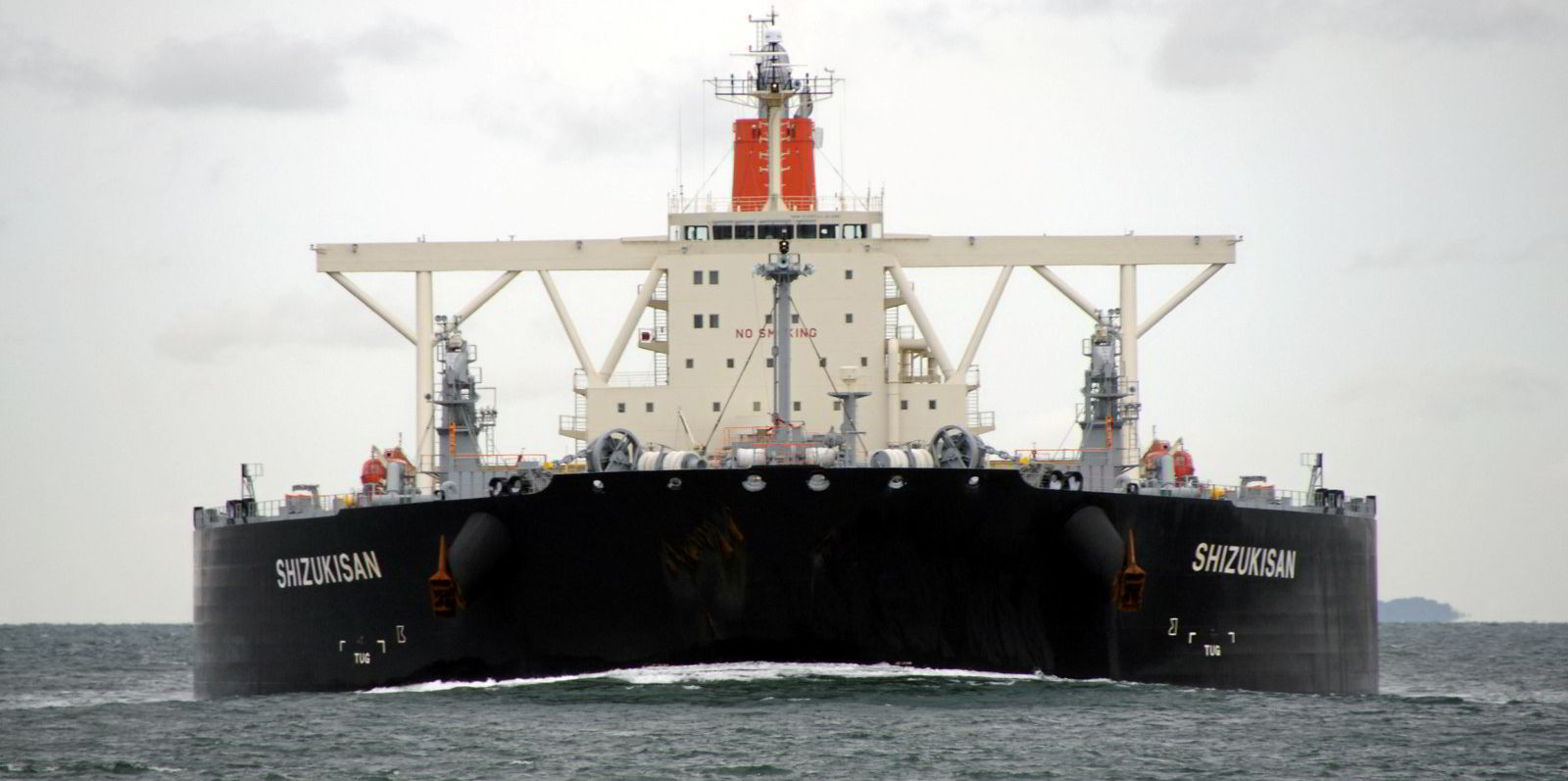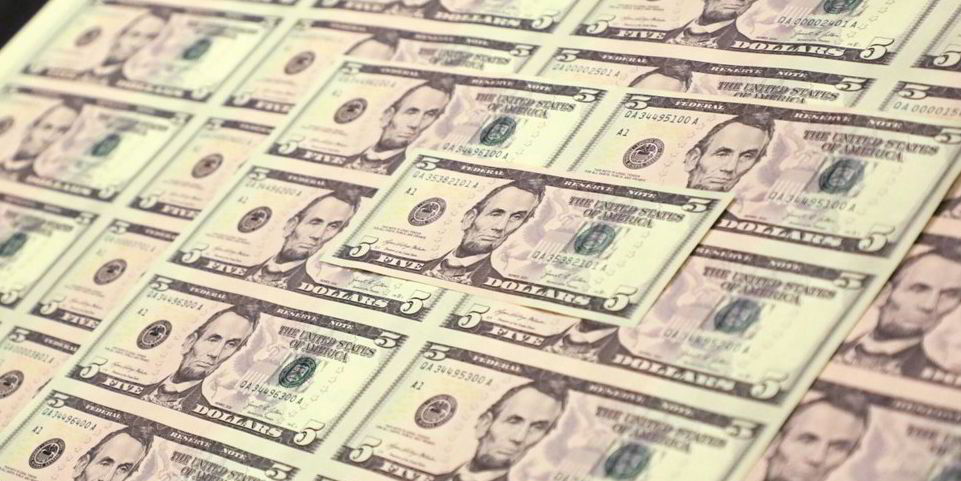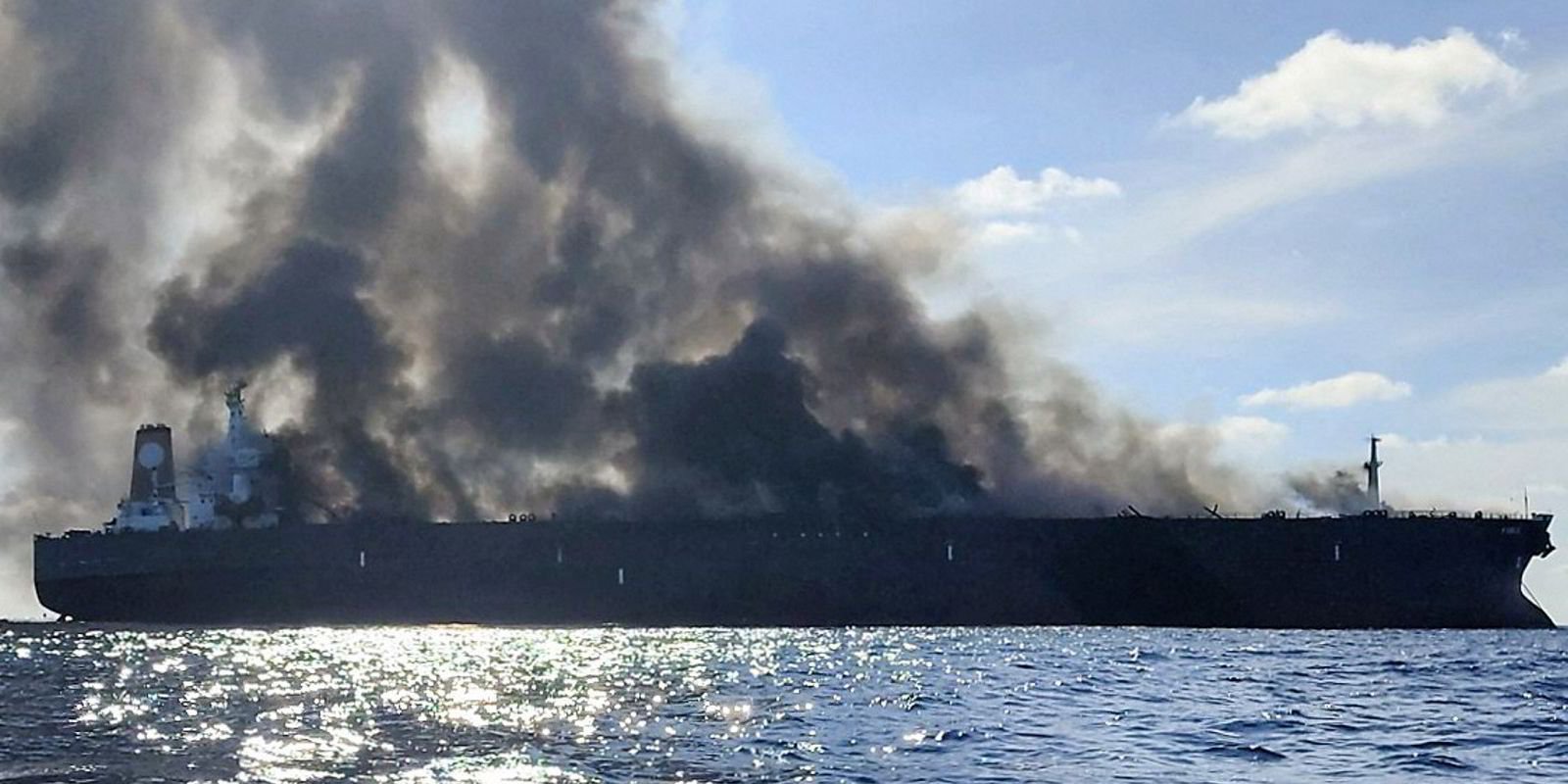Waste is golden. To put it another way: widespread gross inefficiencies in the disposition of physical assets make for constraints in the supply of the relevant asset class, and such supply constraints make for spikes in trading and sales values.
Thanks to sanctions, today’s two-tier tanker market is nothing if not grossly and lucratively inefficient.
Take the current voyage of the 299,100-dwt crude carrier Titan (built 2003), which loaded with crude oil in February and has spent most of its time since then waiting to find a place to discharge.
Bloomberg News reported last week that the Titan was among ships caught in a month-long queue off Qingdao, where Shandong provincial officials have gotten strict about the unsafe, ageing tankers arriving there with sanctioned oil.
What Bloomberg did not report is that the ship has spent by far most of its time this year waiting, not trading, and not just off Qingdao.
Going by AIS data, the VLCC Titan loaded with crude somewhere near Iran around the middle of February, took its time about getting to Singapore, where it waited; paused off Zhoushan still laden and waited again, clearly undecided about its ultimate destination; then made its way to Qingdao to wait again, before turning around and proceeding back southwards to the Hong Kong-Pearl River outer anchorages. There it waits today, in hopes of a more open-minded reception than at Qingdao.
At 12 knots, the Iran-to-Qingdao voyage should have taken about three weeks. What is a ship like the Titan worth, that loads crude in February but for political reasons cannot discharge it until —optimistically — May?
It is worth a pile of cash.
When the Chinese-built ship was delivered to German owner Dr Peters in December 2003, it changed hands for a reported $72m. Over the next 15 years, it depreciated normally and sold in 2018 for a reported $22.8m as the end of its oil-major approval years hove into sight.
But now, after a series of obscure owners and improbable names and flags, most recently a Seychelles-registered company with no contact details beyond a generic email address, it has grown its value back to about $42.88m, according to VesselsValue — even though customers cannot count on it to deliver the crude it carries very promptly.
Let’s think about that number. The Titan is worth $26.92m as scrap steel, so its ability to trade is worth around $16m, even though its cargoes are devalued by a sanctions discount, and it cannot be relied on to deliver more than a couple such cargoes per year.

And nobody can say how long a ship like the Titan will keep trading, but somebody has done the math and decided that it will be long enough to earn well more than $16m, even if the Titan spends most of its time just waiting to be told where to go.
Reputable tanker owners publicly deplore — not least in the pages of TradeWinds — the survival of such ships. They rightly point out that the lower tier of the two-tier tanker market is overaged, underinsured, under surveyed, and a threat to the environment and the lives of seafarers.
At the same time, however, the tanker underclass is supporting the values of the fleets of those reputable owners.
The ships reputable owners might otherwise have had to scrap are being sold for a mighty premium into the dark fleet, and that slow-moving, furtive lower tier thus supports the value of a constrained upper tier of crude carriers.
Greater paradox
One paradox here is that the Chinese petroleum market, in its hunger for sanctioned cargoes, has created a fleet of questionably maintained tankers that China, or at least the port of Qingdao, has now become wary of.
But the greater paradox is that the reputable owners and the shady players behind the dark fleet depend on each other. The reputable owners supply the dark fleet with their castoffs, and the dark fleet inflates the value of ships that would otherwise go for scrap. Dark fleets pay shiny dividends.
Besides the Titan, a number of ships from the fleets of stock-listed owners, Greek, Norwegian, US, could be mentioned who have serially hived off tankers and gas carriers that they could no longer trade, but on whose future trading the reputable owners could profit indirectly through sales.
Reputable tanker owners do well to deplore the existence of the dark fleet.
But as long as their old ships keep turning up there, they own it.





